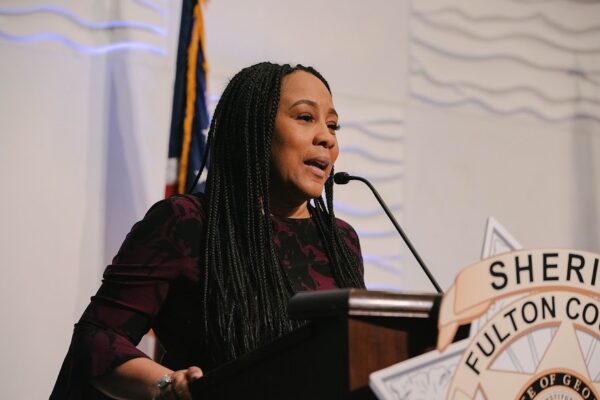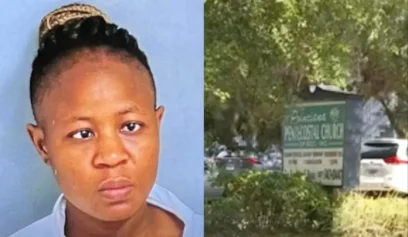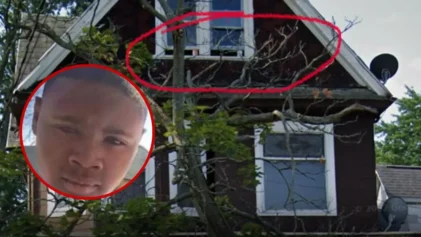A county judge has blocked Fulton County District Attorney Fani Willis from including Georgia’s Republican candidate for lieutenant governor in her grand jury probe into former president Donald Trump’s push to reverse the state’s election results, ruling that her campaign activity on behalf of the candidate’s election opponent created a conflict of interest.

Willis launched the investigation into phony Georgia presidential electors who ceremoniously certified the 2020 election for Donald Trump even though he lost the state’s vote.
In court documents, Willis accuses 16 state Republicans of falsely signing certificates claiming to be the “duly elected and qualified Electors for President and Vice President of the United States of America from the State of Georgia” on December 14, 2020, when Democratic President Joe Biden had actually won the race and the electoral votes were cast by Democrat nominees that same day.
The court filing first reported by Politico is the district attorney’s response to one of the subjects of the probe, former Georgia GOP state Sen. Burt Jones, who is running for lieutenant governor. Jones claims Willis targeted him because she supports his political opponent, and for that she should be disqualified from serving as legal adviser to the grand jury.
The “criminal” act transpired amid political chaos, with Trump alleging that the election was stolen through widespread fraud in the state, spurring three recounts. The former Republican president’s campaign and his supporters went on a litigation warpath. The allegations also led to an overhaul of the state’s election laws by the Republican-led Legislature, signed by Republican Gov. Brian Kemp.
Willis argued in the document filed on July 19 that Jones is no different than the other 15 electors named in the investigation. The group included Georgia Republican Party Chair David J. Shafer, county-level GOP officials, another former state lawmaker and local conservative activists.
“Jones is similarly situated and has been treated identically to each of the fifteen other unofficial ‘electors’ who represented themselves as properly certified electors for the 2020 Presidential election and who received similar target status notification,” Willis wrote.
With Lt. Gov. Geoff Duncan not seeking a second term, Jones will face Democratic opponent Charlie Bailey in the November election. Willis is also a Democrat, but she argues that Jones has “failed to identify any personal interest” on her behalf that meets the legal criteria for disqualification.
Jones also alleged that the special grand jury intends to release a report in October, right before the Nov. 8 election, but the district attorney said she is “not aware of any such definitive timeline.” However, Fulton County Superior Court Judge Robert McBurney sided with Jones on July 25.
McBurney said Willis’ office may “ask witnesses about the Senator’s role in the various efforts the State Republican party undertook to call into question the legitimacy of the results of the election,” but she cannot use the evidence to develop a case against Jones. The judge also questioned Willis’ decision to host a fundraiser for Bailey.
Willis’ told CNN on Monday, that they “are reviewing the order and considering the course of action.” The Prosecuting Attorney’s Council of Georgia has the option to choose another district attorney’s office to question Jones, according to state law.
Willis launched the investigation to examine Trump and his allies’ efforts to reverse Georgia’s election results. It includes a review of Trump’s call with Georgia Secretary of State Brad Ratffensperger asking him to “find” enough votes to overturn the election. She has reportedly subpoenaed U.S. Rep. Jody Hice (R-Ga.) and Sen. Lindsey O. Graham (R-S.C.), state legislators, former New York mayor and Trump attorney Rudy Giuliani and other Trump allies.
According to reports, Trump pushed GOP-led legislatures in at least seven states to appoint “alternate” electors alongside the Democrats. The former president used the mock electors as evidence of his stolen victory to pressure former Vice President Mike Pence to stall the certification of the presidential votes in Congress on Jan. 6, 2021. Pence had signaled in advance he would not along with unconstitutional scheme, which reportedly led to the Capitol riot that day.
In another filing, the GOP elector nominees invoked their Fifth Amendment right against self-incrimination. They alleged they were elevated from witnesses to criminal targets in the investigation as a “publicity stunt.”
The Georgia Republicans argued that they weren’t aware of Trump’s scheme and cast “contingent” electoral votes in case a court ruling deemed them the legitimate electors for Georgia.
“[T]he nominee electors did not and could not have had any involvement in or knowledge of any such plan, as it was not even conceived until several weeks after the GOP electors had completed their contingent electoral slates on December 14, 2020,” attorneys for the Republican elector nominees wrote, “and, in any event, it was never disclosed to or discussed with the nominee electors at any time.”


